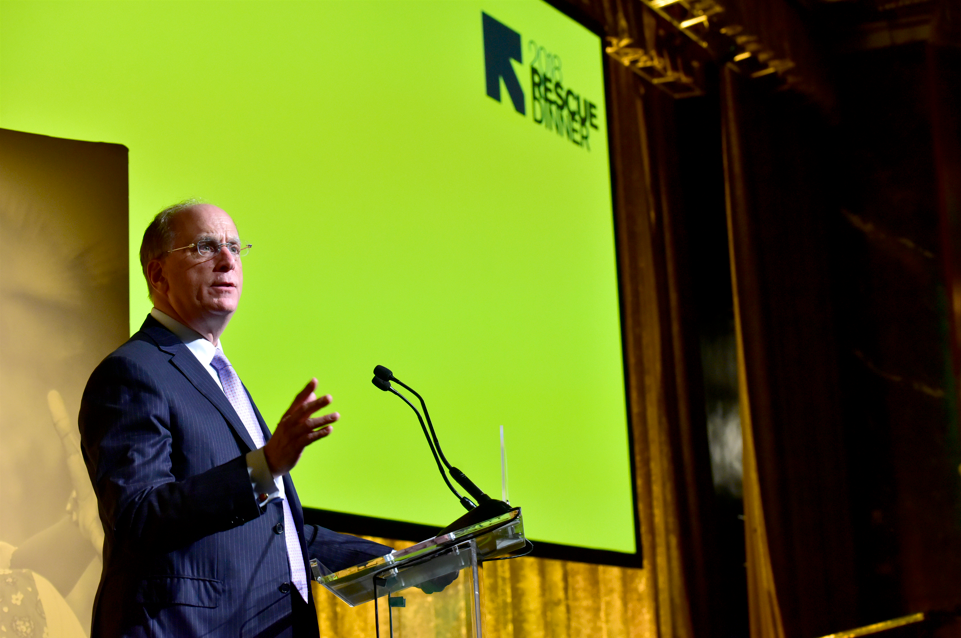BlackRock Inc.’s announcement on Thursday that the world’s biggest asset manager will set up a spot Bitcoin trust for institutional clients in the U.S. is another sign that traditional investment houses are coming to terms with cryptocurrency as an emerging asset class, even if some are still holding their noses.
Despite the slump in the broader crypto market, BlackRock — with roughly US$8.5 trillion in assets under management — said in a blog post it has seen “substantial interest” from institutional clients in gaining access to Bitcoin through such a fund.
BlackRock follows some other heavyweights. U.K banking giant Barclay’s invested in the cryptocurrency firm Copper last month, while Fidelity Investments, one of the largest providers of 401(k) retirement plans in the U.S., began allowing clients to invest part of their portfolio in Bitcoin in April.
These developments are clearly very supportive for Bitcoin, Justin d’Anethan, Institutional Sales Director at digital asset trader Amber Group, told Forkast in an interview.
Thursday marks the second recent major crypto development from BlackRock. Last week, the firm announced a partnership with U.S. cryptocurrency exchange Coinbase Global to extend the use of its Aladdin asset management software suite to institutional clients who also own digital assets through Coinbase.
“It’s showing you a trend,” d’Anethan said, arguing BlackRock’s fund will push other large institutions to offer similar products for fear they may become obsolete. “In the coming future … you will see other fund providers or large asset managers offering investment instruments or vehicles to their different investors.”
The move marks a departure from BlackRock CEO Larry Fink’s sentiments in 2017 when he said “Bitcoin just shows you how much demand for money laundering there is in the world … that’s all it is.”
Jeff Yew, chief executive officer of Australia’s Monochrome Digital Asset Management, told Forkast in an interview that he was not surprised to see the BlackRock backflip, because other financial institutions like JP Morgan and Goldman Sachs both expressed similar doubts before then offering crypto services.
“As Bitcoin enters its second decade, it is not the first case where a large institutional player like BlackRock flips their opinion on the asset class to the positive side,” Yew said. “Bitcoin is such a new discipline and it just takes time for people to get their head around it and also get around their skepticism and also having their concerns addressed through education,” he added.
Crypto rules
U.S. lawmakers, along with those in other countries, are trying to figure out how to regulate cryptocurrency following the multibillion-dollar collapse of the Luna-Terra stablecoin project in May and the crypto market contagion that followed, causing a string of bankruptcies and losses for hundreds of thousands of investors.
Increased institutional involvement could spur these regulation efforts, says Yew.
“Institutional support brings in robust frameworks and infrastructure that we are deprived of in the nascent stages of this asset class like Bitcoin,” he said. “A lot of the failures we’ve seen in the marketplace … has actually little to do with the technology or the protocol behind it, but rather poor risk management brought forward by human actions in the absence of regulation.”
Following BlackRock’s announcement, Bitcoin reached a two-month high of US$24,822 before retreating back to just under U$24,000 at 2:30 p.m. in Hong Kong.
Despite July seeing Bitcoin record its best monthly performance since October, the crypto market has a long way to go before it recovers to the highs seen last year. D’Anethan said the BlackRock timing actually makes a lot of sense.
“When you’re in a bear market it’s time to build as opposed to just the trading or the ‘hodling’,” d’Anethan said. “So when there is another bull run they are in a better position than their competitors to offer that type of exposure.”
Retail crypto investors have suffered a blow to their confidence over the so-called crypto winter and Yew said he wasn’t sure if the arrival of the institutional heavyweights will bring them back initially.
They may find greater confidence in any consumer protections that are included in regulatory changes, he said.
“Institutional support will usually signal that this asset class is prime and mature for taking its next step into the regulated environment. And I think that’s actually a good thing to protect investors ultimately.”





